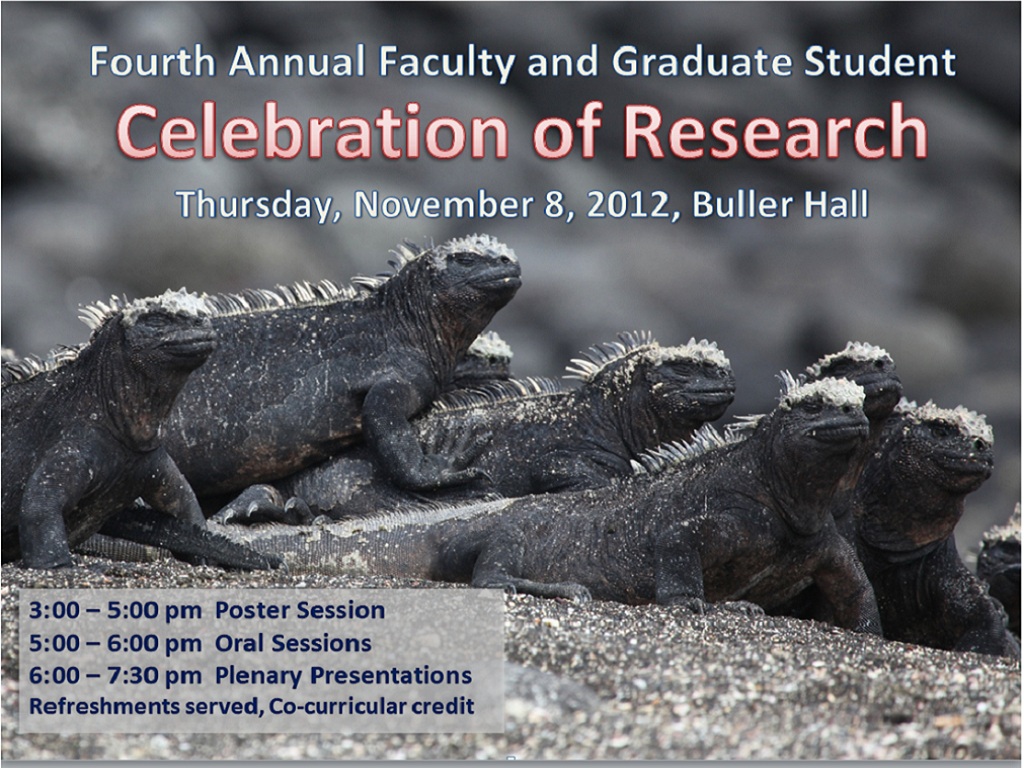P-28 Onset of Synchrony in Avian Ovulation Cycles
Presenter Status
MS Student in Mathematics & Science
Second Presenter Status
Department of Mathematics
Third Presenter Status
Department of Biology
Preferred Session
Poster Session
Location
Buller Hallway
Start Date
8-11-2012 3:00 PM
End Date
8-11-2012 5:00 PM
Presentation Abstract
Spontaneous oscillator synchrony occurs when populations of interacting oscillators begin cycling together. Synchrony has been documented in many physical and biological systems, including estrous/menstrual cycles in rats and humans. In previous work we showed that Glaucous-winged Gulls (Larus glaucescens) can lay eggs synchronously on an every-other-day schedule, and that synchrony increases with colony density. Here we pose a discrete-time model of avian ovulation to study the dynamics of synchronization. We prove the existence and uniqueness of an equilibrium solution which bifurcates to synchronous cycles as colony density increases.
P-28 Onset of Synchrony in Avian Ovulation Cycles
Buller Hallway
Spontaneous oscillator synchrony occurs when populations of interacting oscillators begin cycling together. Synchrony has been documented in many physical and biological systems, including estrous/menstrual cycles in rats and humans. In previous work we showed that Glaucous-winged Gulls (Larus glaucescens) can lay eggs synchronously on an every-other-day schedule, and that synchrony increases with colony density. Here we pose a discrete-time model of avian ovulation to study the dynamics of synchronization. We prove the existence and uniqueness of an equilibrium solution which bifurcates to synchronous cycles as colony density increases.



